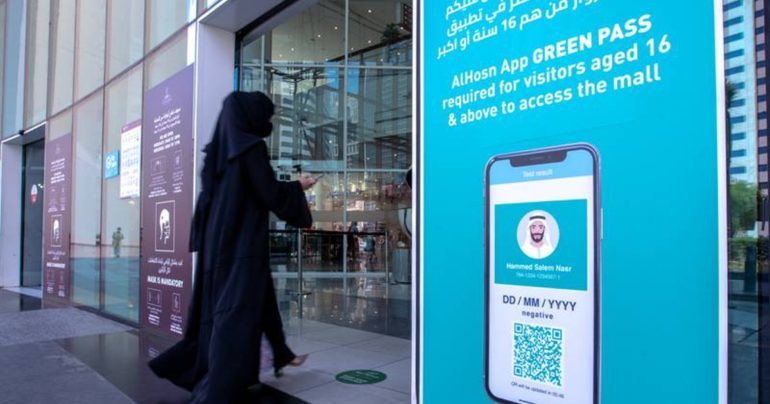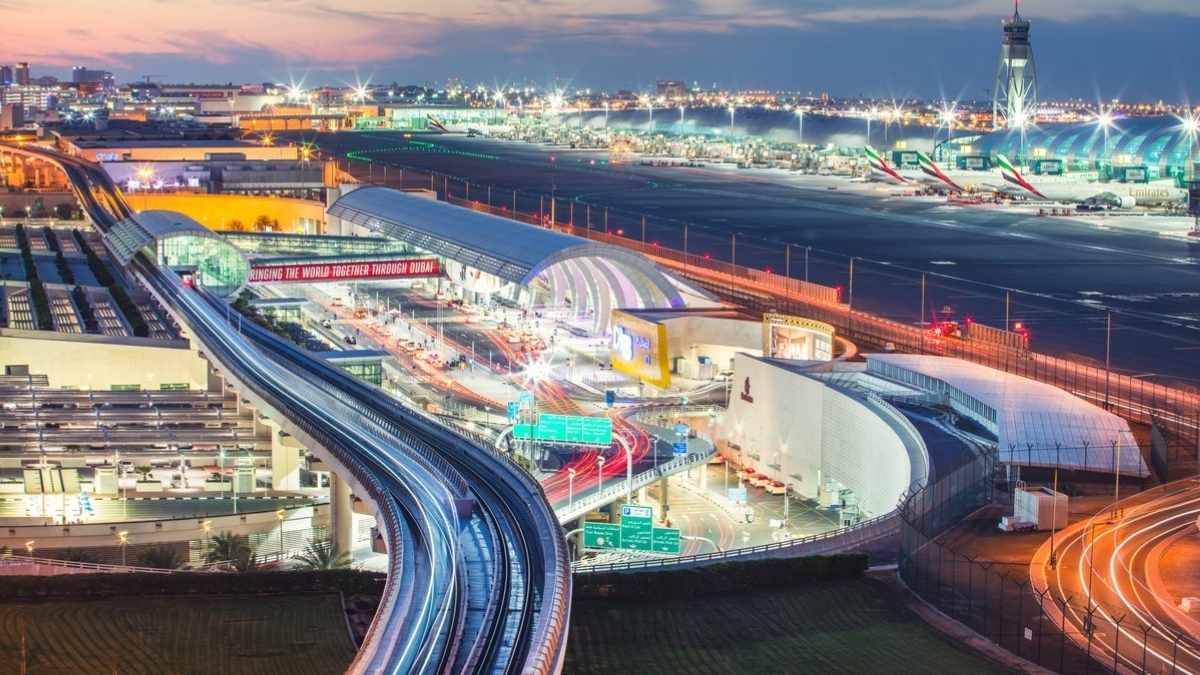With all of the modifications to the laws and regulations for entering Abu Dhabi, adjustments have been necessary to strike a balance between safety and normalcy. It’s critical to stay up to date on the most recent requirements and limits. This guide aims to clarify the most essential current rules for accessing Abu Dhabi and public locations inside the Emirate in a straightforward manner. And the Alhosn Green Pass should be your starting point.
What Is The Alhosn Green Pass?
The Alhosn Green Pass is effectively a traffic light app that shows your current Covid-19 test and vaccination status, and it’s very much required for travel into and around Abu Dhabi. It’s available for download for free from Apple, Google Play, Samsung Store, and AppGallery. The app has a lot of features, but the most important ones are storing your vaccination data (residents who were vaccinated in the UAE should have their information loaded automatically; tourists who were vaccinated elsewhere should follow the instructions below to upload their certificates into the system) and showing any recent PCR tests associated with your account. The Alhosn app will ask for your Emirates ID number if you are a resident. Tourists will need to use their visa’s UID number.
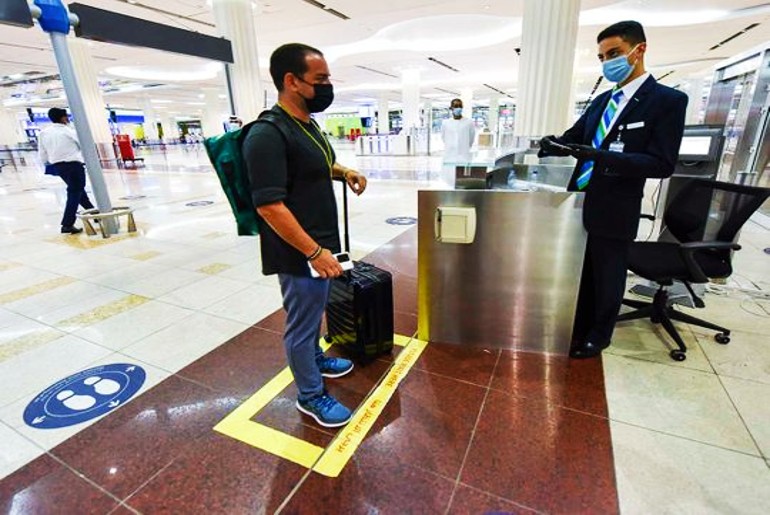
Colour Coding
When your app’s main profile is updated, it will display a QR code and a status in one of three colors: green, grey, or red. Green indicates that you’ve had a recent PCR test and are up to date on your vaccines. You must receive a booster six months after your second dosage to preserve your fully vaccinated status and be eligible for the Green Pass as of January 16, 2022. This is true for all vaccines.
Grey indicates that you are either not completely vaccinated (or that your immunizations are not reflected in the app), or that at least one additional PCR is required (you may require two if you have entered the UAE recently, the app will let you know when). If you’re over 50, have reasonably serious symptoms, have a chronic ailment, or are pregnant, you’ll be directed to one of the Prime Assessment Centres for medical check and isolation instructions.
You’ll need two negative PCR findings at least 24 hours apart to stop isolation, or you’ll need to complete 10 days of isolation (with at least three symptomless days in the end), with PCR testing on days eight and ten. Other people: You should retest in any health clinic in the emirate and isolate yourself. If the test is positive, you’ll be called by a specialist who will give you advice on how to isolate yourself. If the second test comes back negative, you’ll need to repeat it 24 hours later, and if it comes back negative, you’re free to leave isolation.
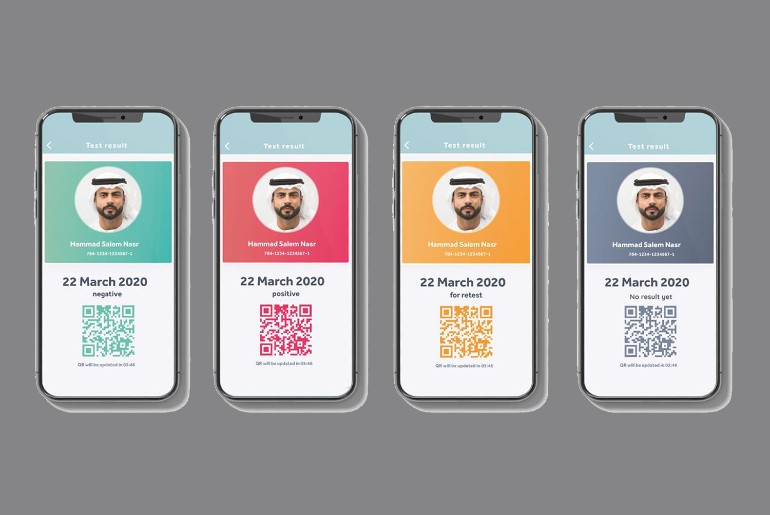
What About Close Contact?
Those who are discovered to be in close contact will receive an SMS message with a link to schedule a PCR test and register for home quarantine. Individuals who have been fully vaccinated must self-isolate for seven days, whereas those who have not been fully vaccinated must self-isolate for ten days. If the test is positive, you must follow the guidelines outlined above. If the test is negative, you must still quarantine, but on day six of the isolation, you must take a PCR test. This test can be carried out in any medical facility. If the outcome is negative, you are free to resume your normal activities.
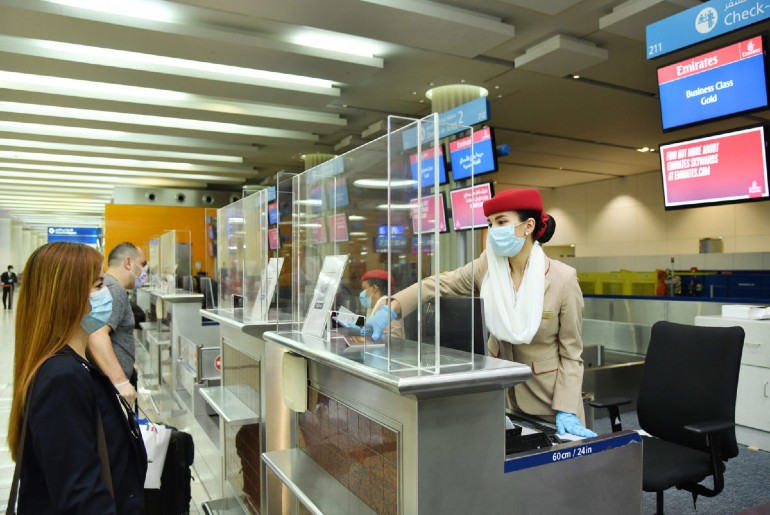
Also Read: UAE Has Approved A New Sinopharm COVID-19 Vaccine For Emergency Use & Here’s Everything To Know!
What Are The Current Entry Rules For Abu Dhabi?
1. Entering Abu Dhabi by road
Vaccinated individuals who seek to enter Abu Dhabi by road will need to display an Alhosn Green Pass. Individuals who have not been vaccinated must have a negative PCR test within 96 hours. In addition to EDE scanning at border crossing locations, these new requirements will be implemented. It’s all part of the Abu Dhabi Emergency, Crisis, and Disasters Committee’s pre-emptive steps to protect public health and mitigate the impact of new Covid-19 versions.
2. Entering Abu Dhabi by Air
a) Who needs to quarantine
Following changes to Abu Dhabi’s admission rules, fully vaccinated persons, regardless of nationality or origin, have not been required to quarantine since early September. To be considered “completely vaccinated,” the vaccinations must have been one of the World Health Organization-approved vaccines (WHO).
Oxford–AstraZeneca (including Covishield), Pfizer-BioNTech, Sinopharm-BBIBP, Moderna, Sinovac, and Janssen have all received emergency approval from the WHO (Johnson & Johnson). You must have received both doses within the last 28 days, and if you received Sinopharm in Abu Dhabi more than six months ago, you must have received a third jab, which will be reflected on the Alhosn app.
Unvaccinated passengers from Green List countries are also exempt from quarantine if their arrival PCR test yields a negative result. Passengers from countries not on the Green List who are not vaccinated will be held in quarantine for ten days (the day you arrive is considered day 1).
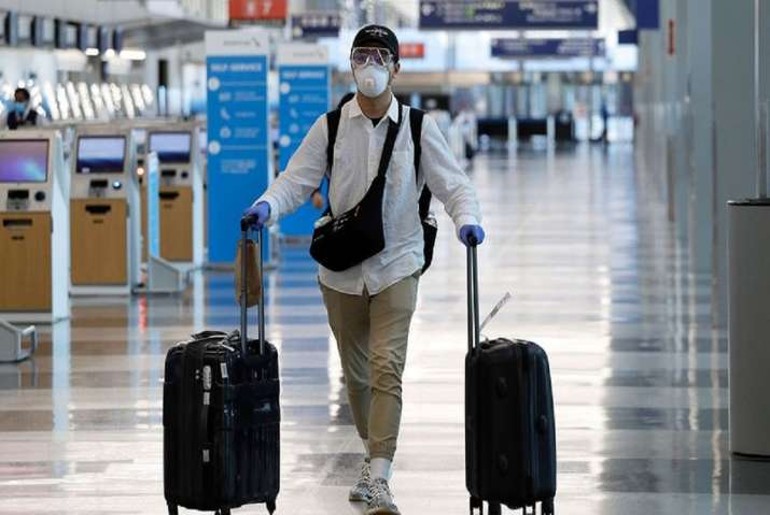
b) What is the Green List?
The ‘Green List’ of countries in Abu Dhabi is a collection of overseas territories believed to pose little risk of importing Covid-19 into the emirate. The list is based on a comprehensive examination of pandemic management factors, including infection and immunization rates, government policy, admission regulations, and testing protocol.
The Green List is updated on a regular basis to reflect changes in global health. To make the list, destinations must meet a stringent set of health and safety requirements. This implies that passengers traveling from certain countries, regardless of vaccination status, will not be subjected to quarantine but will be required to perform a PCR test upon arrival at the Abu Dhabi airport.
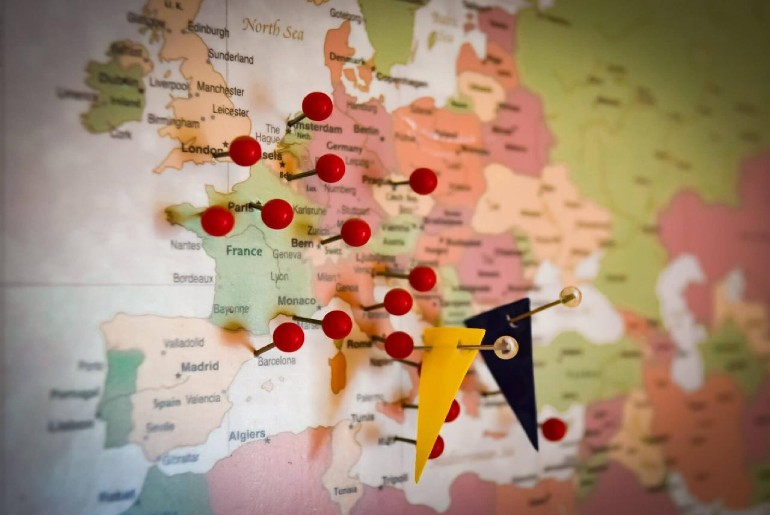
c) Travel corridors
When traveling between Abu Dhabi and Bahrain, Greece, Serbia, and Seychelles, you will not be required to quarantine if you have been fully vaccinated against Covid-19 (last dose received at least 28 days before travel).

d) PCR requirements for arrival from Green List countries
The quarantine will not be required for passengers arriving from countries on the Green List, regardless of vaccination status (though if you are unvaccinated, you will be restricted from visiting most public spaces), as it is a requirement of the Alhosn Green Pass, which is required to enter almost all parts of the capital.
1) Everyone will need to take at least one PCR test, however.
2) Vaccinated passengers arriving from Green List countries will need a PCR on arrival, and on day six.
3) Unvaccinated passengers arriving from Green List countries will need a PCR on arrival, and on days six and nine.
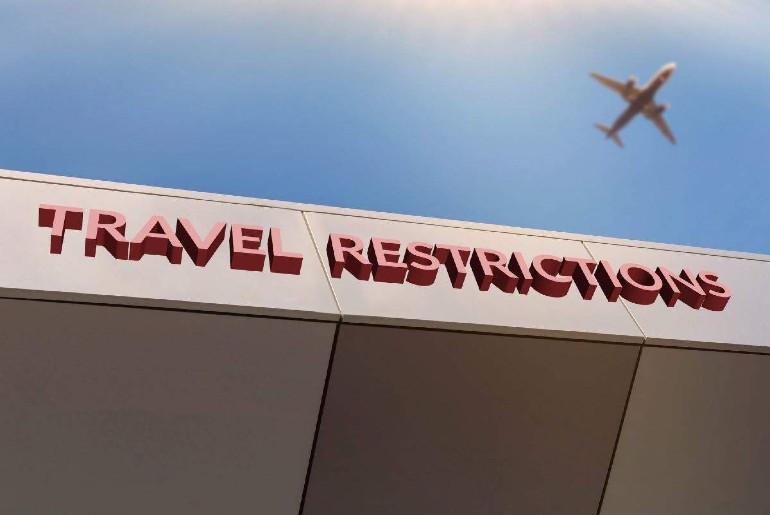
PCR & Quarantine For Arrival From Non-Green List Countries
Passengers who have been vaccinated in countries that are not on the Green List will require a PCR on arrival, as well as on days four and eight. Unvaccinated passengers traveling from countries, not on the Green List must quarantine for ten days and must have a PCR on arrival and on day nine.
How Tourists Prove They’ve Been Vaccinated
For anybody intending to enter the UAE under the new conditions, vaccination certificates will be required. Tourists must register their documents five days ahead of their departure date on the ICA website. We suggest doing this on the desktop site because it has greater capabilities.
Step one is to download the ICA app and complete the Register Arrival section of the form. You can upload your immunization certificates here, and after that is done, you will receive an SMS with a link to download the Alhosn app. You’ll need to use the same phone number for both the ICA and Alhosn apps, and we recommend using a UAE sim (you can change the registered phone number registered to the ICA via the ICA app).
Next, you’ll need a UID number, which you may get on the ICA website or at the airport when you arrive. This is required in order to create your profile on the Alhosn app. You’ll need to link your Alhosn account to a phone number (the same one you used for the ICA).
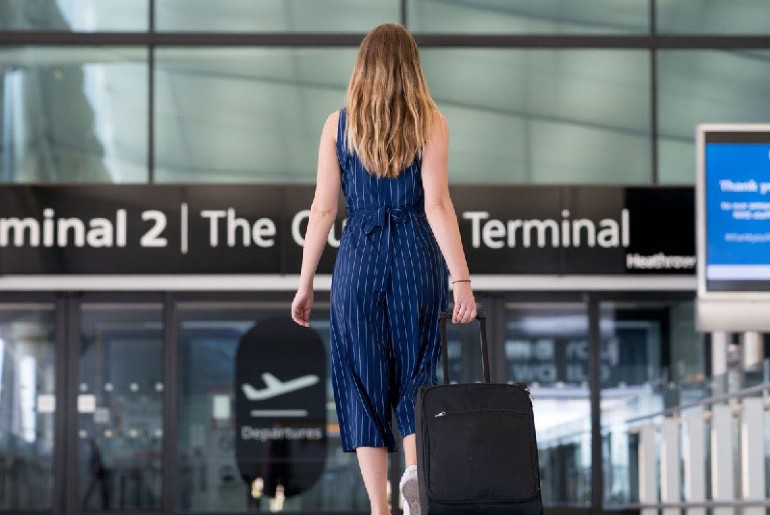
FAQs
What Is The Alhosn Green Pass?
The Alhosn Green Pass is effectively a traffic light app that shows your current Covid-19 test and vaccination status, and it's very much required for travel into and around Abu Dhabi. It's available for download for free from Apple, Google Play, Samsung Store, and AppGallery.
What Are The Current Entry Rules For Abu Dhabi?
Vaccinated individuals who seek to enter Abu Dhabi by road will need to display an Alhosn Green Pass. Individuals who have not been vaccinated must have a negative PCR test within 96 hours. In addition to EDE scanning at border crossing locations, these new requirements will be implemented. It's all part of the Abu Dhabi Emergency, Crisis, and Disasters Committee's pre-emptive steps to protect public health and mitigate the impact of new Covid-19 versions.

